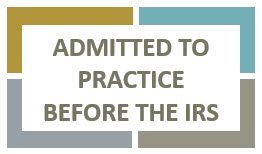ALABAMA TAX DELINQUENCY AMNESTY ACT OF 2018.
BEGINNING JULY 1 2018 AND ENDING SEPTEMBER 30 2018.
Alabama Tax Delinquency Amnesty Program Act 2018-153
On March 6, 2018, Governor Kay Ivey signed into law the Alabama Tax Delinquency Amnesty Act of 2018. The act provides an opportunity for eligible taxpayers to voluntarily come forward and resolve their delinquent filing and payment obligations for certain types of Alabama taxes and receive a waiver of all of the interest and penalties associated with these delinquencies.
Features of the 2018 Amnesty Program:
- Applies to eligible taxes due before, or for tax periods that began before, January 1, 2017.
- Provides for a waiver all of the interest and penalties associated with the eligible taxes for approved tax amnesty program applicants.
- Provides for a waiver of penalties for filing the current year return (2017) with the amnesty returns.
- Limits liability for approved applicants to a three-year “look-back period” for all taxes eligible under the amnesty program.
The Application Process:
- Applications must be submitted electronically.
- The amnesty application period is from July 1, 2018 – September 30, 2018.
- All amnesty returns and payments are due by November 15, 2018.
Payment and Filing of Returns:
- Payments for taxes due are required to be in certified funds, and no installment payments are permitted.
- All amnesty returns and payments must be mailed to:
Alabama Department of Revenue
2018 Tax Amnesty Program
PO Box 327445
Montgomery AL 36132-7445
Inquiries:
- All amnesty related questions should be directed to: amnesty@revenue.alabama.gov
Contact includes any previous contact of any kind by the Department or an agent with regard to potential liability for the type of tax identified in the amnesty, including but not limited to nexus questionnaire; filing of returns; an audit or notice of audit; registration with Secretary of State or Department; request for an extension to file a return; payment notices/billings relating to the delinquent returns or estimated tax; and non-compliance issued in response to an application for certificate of compliance by the taxpayer.
ELIGIBLE TAXPAYERS
- Taxpayers that are not a party to a criminal investigation or litigation in any court of the United States or Alabama pending as of March 6, 2018, for nonpayment, delinquency, or fraud in relation to any Alabama state taxes administered by the Department.
- Taxpayers that have not been contacted by the Department within the last 2 years.
INELIGIBLE TAXPAYERS
- Taxpayers who have been contacted by the Department within the last 2 years.
- Taxpayers with an outstanding debt shown on the Department’s records in the form of a bill, assessment, or civil collection action (for example, garnishment).
- Any taxpayer who has been scheduled for audit or is currently under investigation.
- Taxpayers who have been issued a final assessment in which the appeal period has ended pursuant to §40-2A-7.
- Any taxpayer who has delivered or disclosed a false or fraudulent application, document, return, or other statement to the Department in connection with an amnesty application.
- Taxpayers who have entered into a Voluntary Disclosure agreement with the Department before December 31, 2017.
- Taxpayers who have been granted amnesty for the tax type as part of the Alabama Tax Delinquency Amnesty Act of 2016.
ADDITIONAL PROVISIONS
- Amnesty program participants must agree to waive the right to protest or initiate an administrative or judicial proceeding related to the specific tax and the tax period for which the amnesty is granted.
- Amnesty approved taxpayers must include the current year return (example: 2017 income tax return) for eligible tax types with the amnesty returns.
- An overpayment that arises after the filing of the amnesty application may make participants eligible for a refund or credit. No interest shall be paid on refunds for a tax period for which amnesty is granted.
- A taxpayer who files an amnesty application retains all administrative and judicial rights of appeal with respect to any additional tax assessed by the Department.
- A taxpayer who delivers or discloses any false or fraudulent application, document, return, or other statement to the Department in connection with the amnesty will be deemed ineligible and be subject to the fraud penalty (§40-2A-11(d)), or penalty of $10,000, whichever is greater, beginning tax years January 1, 2017, through December 31, 2024.
- A negligence penalty (§40-2A-11(c)), or a $100 penalty, whichever is greater, is applied to taxpayers that participate in the amnesty and later fail to comply with any payment or filing requirements of the particular tax type for which the amnesty was granted, beginning tax years January 1, 2017, through December 31, 2024.
*LOOK BACK PERIOD
The Amnesty Act of 2018 provides a three-year “look-back period” for all taxes eligible under the amnesty program. Taxpayers are not eligible for the 3-year limited look-back period to the extent they collected taxes from a customer or employee. However, they are eligible for a penalty waiver when they remit these taxes during this program provided that the taxpayers do not already have an account set up to remit these taxes. Example: If you collected sales tax on sales starting in May 2008, you must remit the sales tax you collected for tax periods beginning in May 2008.
EXAMPLES OF TAX PERIODS INCLUDED IN AMNESTY LOOK-BACK PERIOD
Individual and Corporate Income Tax (calendar year)
Tax years: 2014, 2015, and 2016
Corporate Income Tax (fiscal year)
Example: Fiscal Year Ending 2014, 2015, and 2016
Business Privilege Tax
Tax years: 2014, 2015, and 2016; form years: 2015, 2016, and 2017
Sales Tax*
Monthly returns** for calendar years: 2014, 2015, and 2016
Excise Tax
Tax years: 2014, 2015, and 2016; form years: 2015, 2016, and 2017
Withholding Tax*
Monthly returns** for calendar years: 2014, 2015, and 2016
*If previously collected, look-back period (36 months) would go back to the point of collection.
**Spreadsheets will be accepted and are preferred in lieu of monthly returns

